News Articles
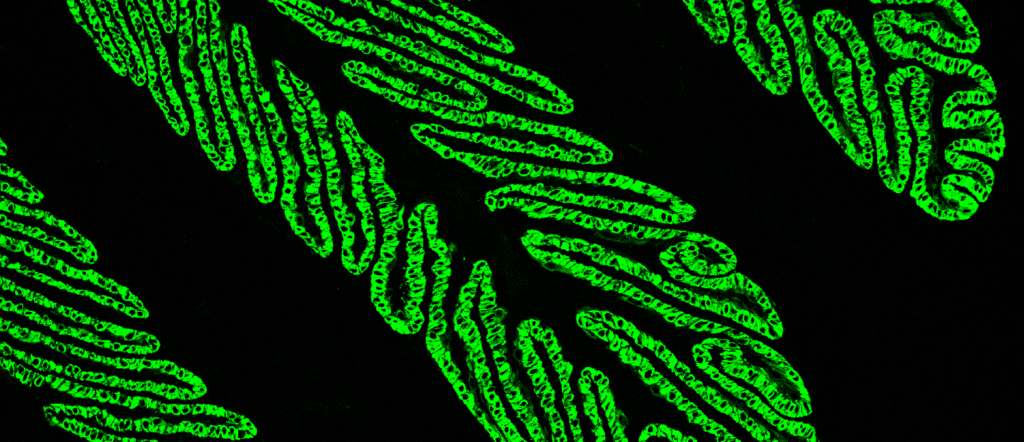
Breakthrough laminitis research shows promise for the future (link is external)
Horse owners usually dread hearing the diagnosis of “Laminitis.” The disease plagues horses of many backgrounds, ages and disciplines. Using genetics, UF/IFAS and University of Pennsylvania scientists have made a breakthrough in the disease thanks to funding from…

A Hub for Zoonotic Disease Research (link is external)
Penn Vet’s unique new Institute for Infectious Zoonotic Diseases
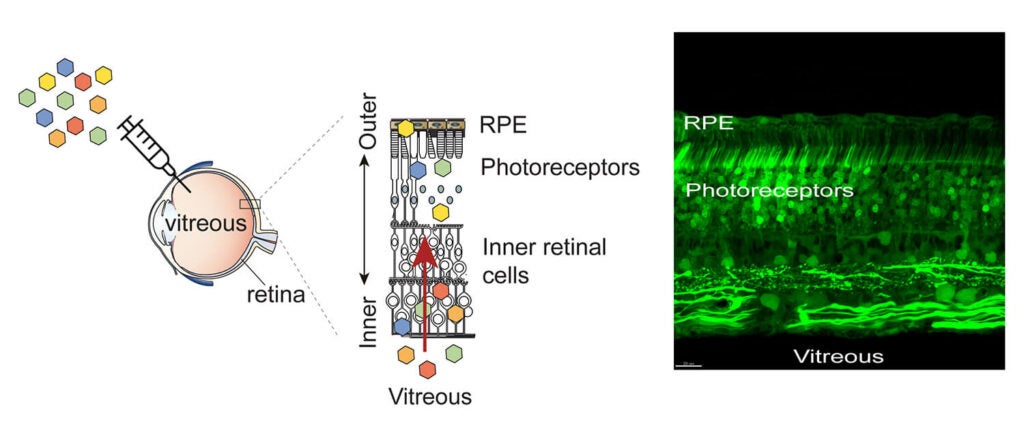
Novel gene therapy platform speeds search for ways to cure blindness (link is external)
A newly developed single-cell RNA sequencing technique enables researchers to quickly identify an optimal vector for delivering therapeutic genetic material to treat vision disorders, and perhaps other genetic conditions.

Forging healthy bonds with canine companions (link is external)
Penn Vet postdoc Lauren Powell’s research illuminates how the personalities of both dogs and their owners influence the pairs’ ability to overcome behavioral challenges.
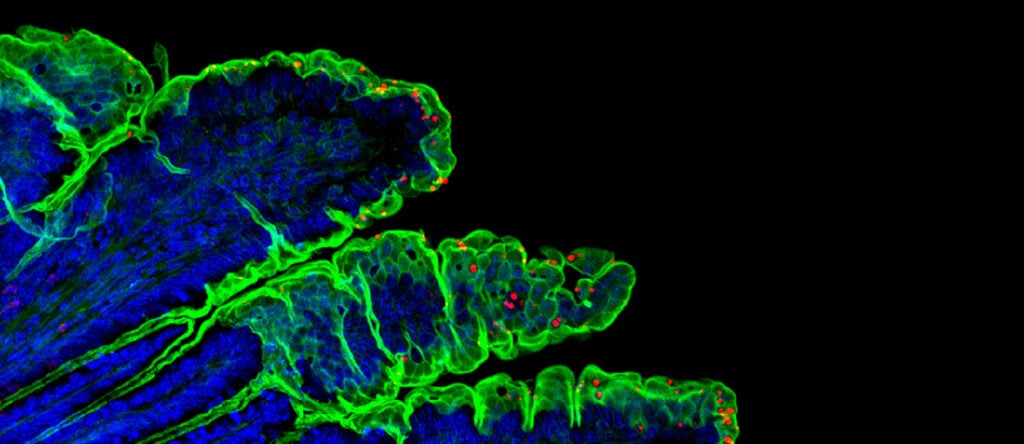
Tracking the earliest steps in parasite infection (link is external)
The parasite Cryptosporidium, a leading global cause of diarrheal diseases in children, injects host cells with a cocktail of proteins. Using powerful video microscopy, Penn Vet researchers tracked the process…

The search for the culprit behind songbird deaths (link is external)
Across the United States, songbirds are dying from a mysterious condition. Working with long-established partners, Penn Vet researchers are striving for a diagnosis.
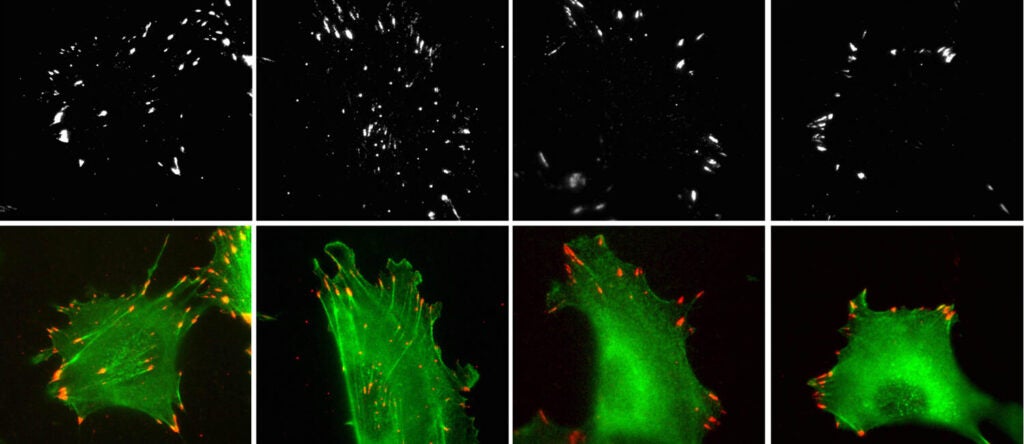
Protein’s ‘silent code’ affects how cells move (link is external)
The protein actin is ubiquitous and essential for life. In mammals, every cell expresses two of its forms, beta-actin and gamma-nonmuscle-actin. Despite having distinct roles, the two forms are nearly…
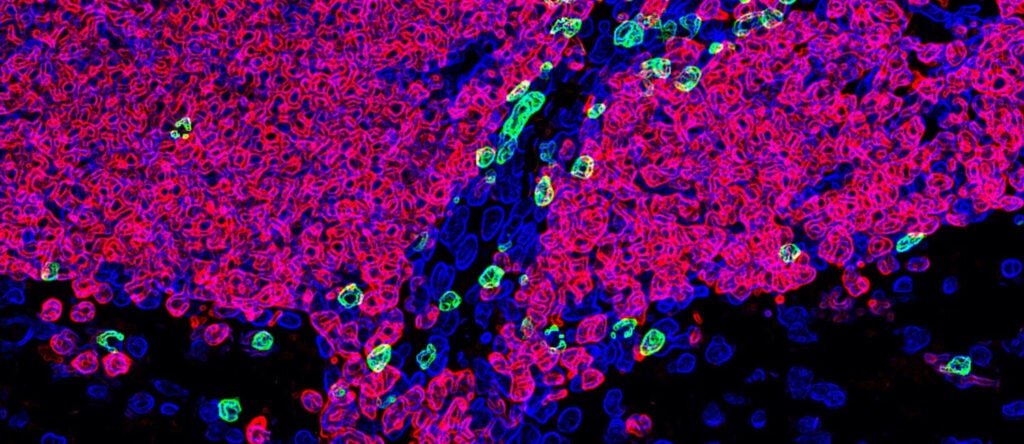
With remarkable similarities to MS, a disease in dogs opens new avenues for study (link is external)
The canine disease granulomatous meningoencephalomyelitis (GME), the most common neuroinflammatory disease that affects dogs, shares key features of its pathology and immunology with multiple sclerosis (MS), according to a new…

Pinpointing how cancer cells turn aggressive (link is external)
Penn scientists have developed a new method for tracing the lineage and gene expression patterns of metastatic cancer at the single-cell level.
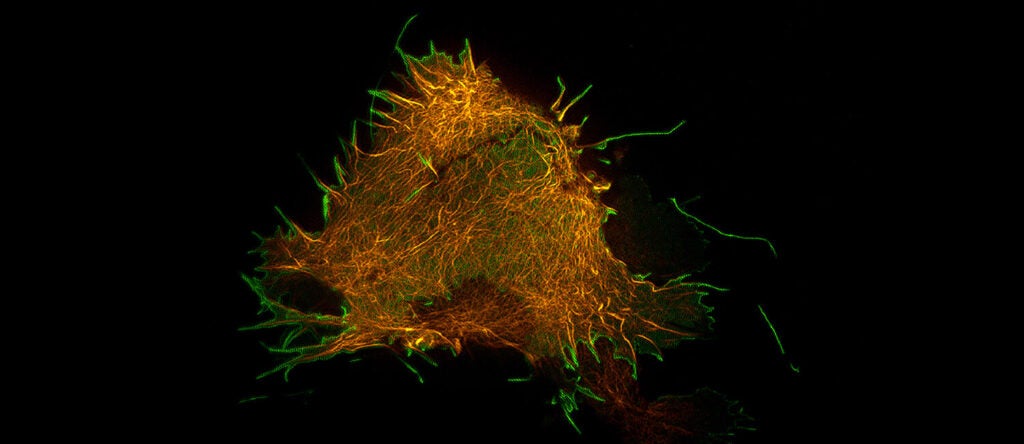
Blocking viruses’ exit strategy (link is external)
The Marburg virus, a relative of the Ebola virus, causes a serious, often-fatal hemorrhagic fever. Transmitted by the African fruit bat and by direct human-to-human contact, Marburg virus disease currently…
Sort By
- Research Laboratories (1)
- ASMG Laboratory - Microbial Genomics (2)
- Lengner Laboratory (2)
- New Bolton Center PADLS (1)
- Anguera Laboratory (4)
- Wang Laboratory (3)
- Puré Laboratory (1)
- Wolfe Laboratory (1)
- Lennon Mucosal Immunology Laboratory (1)
- Dou Laboratory (2)
- Equine Pharmacology Research Laboratory (1)
- Hunter Laboratory (3)
- Brinster Laboratory of Reproductive Physiology (1)
- Sunyer Laboratory (1)
- Harty Laboratory (3)
- Mason Immunotherapy Research Laboratory (2)
- Scott Laboratory (1)
- Vaughan Laboratory (1)
- Research Institutes (5)
- Research Programs (1)
- Research Centers (2)
